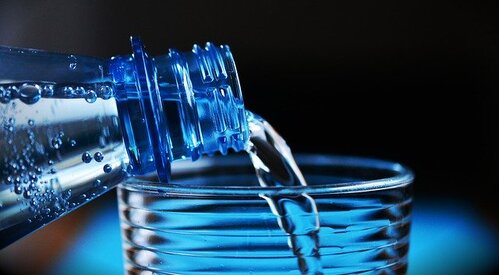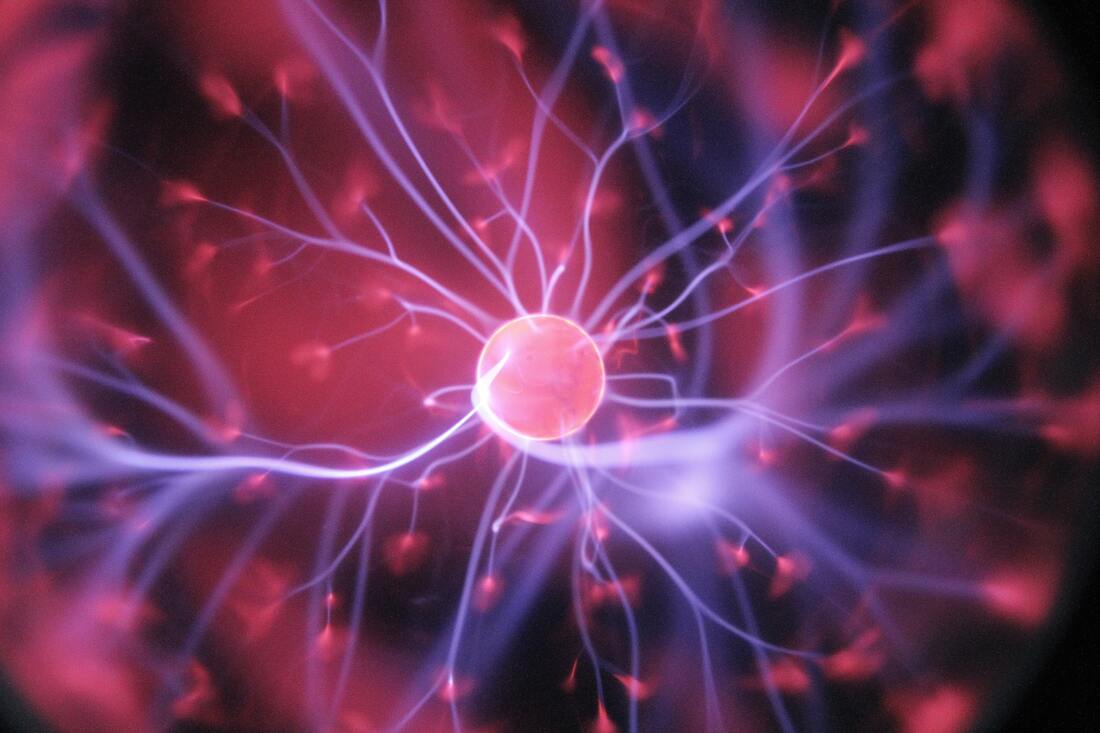|
If you're following along with my Real Food Reset on Facebook, then you know that I just finished my Winter 2020 Three Day Water Fast, along with a whole bunch of people who did it with me (WAY TO GO you guys!!!). I realize that many of you may see “3-day water fast” and want to click X but hang tight and read through this whole post. Not only will I be sharing with you the data I collected from this most recent experience, but I am also going to be giving you my reasons for fasting which may motivate you to try it out yourself. First I want to say that generally speaking, I don't exactly love water fasting. There are things about it that I appreciate, but let's be crystal clear...I freakin' love food. LOVE. IT. I use it to bring together some of my favorite people to celebrate the little and big things in life. It nourishes my body and makes me faster and stronger! And for most of my life, like some of you, I have used food to help me deal with stress, sadness, and a whole host of other emotions (see I’m not perfect either, friends! I don’t recommend this behavior but once in a while it happens, and that’s okay!) So WHHHHHHHY on earth would I fast for 3 days straight consuming nothing but water? Well...the short answer is longevity. My grandmother struggled with Alzheimers disease that eventually took her life, and my aunt is currently living with it too. It scares me to think that someday, due to genetics, I may lose control of my mind and forget the people I love the most. I have done enough reading and research to help empower myself to make choices that can help me avoid the same fate as my family so why wouldn’t I do whatever I can? That is MY why! And knowing how prevalent diseases like Alzheimer’s are, I wouldn’t be surprised if your ears perked up a bit too. Because the reality is, why wouldn’t we want to figure out a way to have a higher quality of life for a longer amount of time? So let me explain how water fasting helps me sleep at night knowing that I'm doing everything I can to be sharp as a tack when I'm in my late 90's (or older)... A QUICK NOTE The point of this post is not to teach you how to properly and safely conduct a longer term water fast. Instead, I will be focusing simply on the benefits of water fasting and what you might expect from the experience. If, after reading, you are interested in learning more than I’d love for you to contact me so we can setup a time to talk more! REASONS TO WATER FAST There are two main reasons to choose to do a water fast: weight loss and longevity (aka - anti-aging). Let's take a look at both. WEIGHT LOSS In my experience with private clients seeking a lower body fat percentage, the common scenario goes something like this: change the diet or movement routine - lose some initial weight - get stuck at that weight. The weight loss journey is hardly ever a straight road. I consider 'being stuck' when someone has been getting results (whatever those are for that person), and then no longer gets results doing the same thing for 7+ days. It obviously doesn't make sense then to continue to do the same thing we've been doing and expect to get more results. Isn't that definition of insanity? So...we change things up. Sometimes we change the diet or movement routine again, or sometimes we use fasting as a tool. It's just ONE of MANY tools we can use to get different results. Fasting is something our body was designed to do. If we weren't equipped to go long periods of time without food, we wouldn't be here. Our great ancestors did not have the luxury of swinging by the 24 hour food mart on the corner in the middle of the night if they were hungry. They had to deal with their hunger until they were able to obtain food from either native trees/shrubs, or harvesting an animal. Sometimes, that was days, or even weeks! The Science Behind Fasting and Weight Loss Source: www.thefastingmethod.com One of the best known, modern day experts in this area is Dr. Jason Fung. I have personally learned a lot from his work. According to him, fasting is part of a natural process. Each day we are either in a “fed state” (i.e., our body is storing the food we ate) or in a “fasted state” (i.e., our body is burning the food we ate). When we eat, our insulin levels rise. This causes some glucose to be burned as quick fuel for our cells and the remaining glucose, as well as fats, to be stored for future use. When we don’t eat, the opposite happens. Insulin levels decrease resulting in our bodies burning the stored energy (i.e., glucose and fat) for fuel. The longer we abstain from eating, the more energy (aka - calories) our body will burn through. If we choose to follow a low carbohydrate diet, on top of utilizing fasting as a weight loss tool, our body will also have less stored glucose to burn and thus head straight to the stored fat for energy use. Essentially, what Dr. Fung is saying, is that the longer we fast, the longer we are burning stored energy (i.e., calories) and so weight loss will follow. It’s relatively obvious! Despite there being plenty of science to backup the fasting-weight loss connection, I think we all intuitively know that weight loss occurs when you don’t eat for multiple days. After about 32 hours, your body runs low on stored body sugars, and will begin to favor burning body fat instead. Since the goal for most people is to lose body fat when they say they want to 'lose weight' then getting past the 32 hour mark for a fast is a great goal. Once you decide to break your fast, you can expect to have a bit of a rebound in weight. There are lots of factors here, but it is not uncommon for some weight to come back on (again, I think this is something we all intuitively understand). Let's say for example you fast for 3 days and lose 6 pounds. With a very strategic re-entry eating plan, it would be common to see a 2 pound rebound in weight, and to successfully keep off 4 pounds. A pretty solid trade off, since typical weight loss goals hover in the 1-2 pounds per week range! More importantly, this fast can give the body the shift it needs to get back onto the weight loss train again (aka- get un-stuck and finally see those numbers start moving in your desired direction!). So ultimately, for your fast to result in the greatest weight loss that actually stays off you need to have a plan in place for your “break-fast” meal as well as the meals that follow it. If you build it correctly, with the appropriate help from a professional, you can expect to see a minor bounce back but an overall loss that can re-energize your body to continue on the weight loss track! I have been using fasting as a strategy for some of my private clients for years and not only does it work, but I repeatedly hear clients say “that was way easier than I thought it would be!” Everybody is different, but I typically use this tool 1x per month with clients who are looking to lose a large amount of weight and have high fasting blood sugar. LONGEVITY/ANTI-AGING Personally, this is why I fast. We can spend days going into the details of how fasting can help prevent protein build up in the brain, prevent cancer, and even increase mitochondria growth but obviously we don’t have days. So instead, what you need to know is the term “autophagy”. Autophagy is a natural process that occurs in our body when we are in a fasted state. Essentially, it is our body’s way of cleaning and recycling unneeded or damaged proteins. These proteins are broken down into their individual parts (i.e., amino acids) which the body then determines whether a) they should be excreted or b) they should be rebuilt into something better! Fascinating right? How does this apply to Alzheimer’s? Simple. Alzheimer’s is a condition in which there is a build up of so-called junk protein in the brain which is caused by a dysfunction of the process of autophagy. So, if there is a process in the body that naturally breaks down excess and defunct proteins, then activating it could prevent the onset of this horrible disease. Now do you understand a little better why I feel so strongly about this? Autophagy has also been shown to destroy pathogens such as bacteria and viruses and might help prevent cancer, metabolic diseases, and other neurodegenerative diseases such as Parkinson’s. I would love to live a long time, but only if I can have both my mind AND my body to enjoy it! If that means a few days without food 2-3x per year, I'll do it. And honestly, it's really not that bad. As an overachieving, type A, perfectionist endurance athlete, it's one of the only times I truly give myself time to take it easy.
Sounds kind of nice, right? This is also why I choose not to fast at home! If I did, I would clean my house, do my laundry, work on my to-do list… and so on. Instead, I avoid it all together so that I can give my body the full break it needs, including digesting! It actually feels really amazing to do this. It's a gift that I know my body deserves and I often don't give it. So since we can't measure autophagy right now outside of the lab, we can only speculate from the data we can measure that it is happening. There is all sorts of talk now that you can get the benefits of autophagy and still eat minimal calories a day. But it is all speculation! Once we have the technology to measure it, I will gladly change my protocol to match what the science says. But until then, I will stick to a 72 hour fast because that is what the science stated is the amount of time needed for autophagy to occur! Now that I know water fasting is actually quite easy and is, in a way, relaxing and freeing, I actually look forward to how great I feel afterward. I still don't love not eating for 3 days, but it's a small price to pay to live a long and happy life. MY RESULTS So let's look at my results so that you can get an understanding of what may occur during a water fast.. I measured what I could with the tools I have, which included:
I started my water fast by first getting myself into ketosis. This isn’t 100% necessary but it makes the transition to a water fast so much smoother you are already burning stored body fat for fuel. I started this process in early January and was using a keto mojo to measure my ketone levels. On Wednesday (2/5/20), I ate my last meal around 6pm at the airport before boarding a flight to Scottsdale, AZ. Why Arizona? My husband had a conference there and it's warm. :) Since he was fasting along with me (you can’t go wrong with a good support system!), we drank water with sea salt and herbal tea until Saturday (2/8/20). We then broke our fast with bone broth and steamed cauliflower around 5pm. We ate our first full meal about 90 minutes later at a really great all paleo restaurant near our hotel. Notice how we were very strategic in our “break-fast”. We did not go “all out” and devour whatever we could. We planned a gentle return to food and focused on the most nutrient dense foods possible. The Data I know we all love numbers so here are some numbers by the day: Wednesday - 2/5/20 Weight: 149.2 Body Fat: 17.3% Skeletal Muscle: 48.2% HRV” 7.2 Travel day and last meal (chicken, spaghetti squash with pesto, and roasted vegetables) at 6pm. Thursday - 2/6/20 Weight: 149.0 Body Fat: 17.3% Skeletal Muscle: 48.2% HRV: 8.9 The first day is always just keeping busy. I worked most of the day on my computer, and when I felt little pangs of hunger, I would get up and move around. Sometimes that meant going for a walk outside, sometimes that meant sitting in the spa at the hotel. Just something to help change the routine. That night, my core temperature dropped, which is pretty common when fasting. That is one thing I advise people to be aware of. I was grateful to be in a warm location with a spa to sit in whenever I felt really cold. I took 360mg of magnesium glycinate before bed that night and slept soundly through the night. Friday - 2/7/20 Weight: 146.4 Body Fat: 16.9% Skeletal Muscle: 48.4% HRV: 7.6 Day two was GREAT! I had really high energy levels and my focus was much sharper than usual. My energy felt high and I decided to go on a very slow jog/walk in the middle of the day. But notice my HRV dropped dramatically on this day. That’s because fasting is a BIG stressor on the body. A good one, but a stress none-the-less. Saturday - 2/8/20 Weight: 144.0 Body Fat: 16.6% Skeletal Muscle: 48.6% HRV: 7.2 Day three has always been the hardest for me. I think part of it is psychological...knowing that I will be eating that evening. But my energy levels were lower on day three, even though my brain still felt incredibly sharp. I spent most of the morning at a coffee shop working on my computer drinking herbal tea. We broke our fast with Vital Proteins powdered organic chicken bone broth and steamed cauliflower before eating our first meal about 90 minutes later. The Rebound As an athlete, I'm mostly concerned about the rebound effect from a water fast. As I mentioned, I don't do this for weight loss, but instead for longevity. I always want to make sure that I am doing good things for my body and a big priority with these fasts is making sure I don't lose lean tissue. However, despite what we commonly hear (that fasting or starvation can lead to muscle loss), it isn’t necessarily true. Some studies have even found that fasting could preserve lean mass when using it as a weight loss tool, in comparison to calorie restriction alone. The reason for this has to do with the hormones that spring into action when insulin drops - in particular growth hormone! During the fast, growth hormone is high! Because no protein is being built, our lean mass doesn’t actually increase. However, growth hormone remains high once we feast again and so we experience a rebuilding phase as the so-called “clean up phase”. The scale, although not nearly as accurate as something like a DEXA scan, showed lean tissue growth during the fast, with a settling back near baseline within 1 week (I started that fast with 113 lbs of lean tissue and 1 week post fast I was at 116 lbs of lean tissue). This makes sense as adrenaline and natural human growth hormone surge during a fast. So if you look at my data post fast, I have basically settled back almost exactly where I started. My weight is hovering between 147-149, my skeletal muscle is at 48.3% and my body fat is back to 17.3% (which is lower than what my DEXA scan shows...meaning my scale is not accurate but that's okay with me since I'm looking for trends, not pointed data here). Since my focus was not on keeping my weight down, I personally went right back to eating and working out the same way I did when I went in. Except I felt well rested and energetic about 1 day after breaking the fast. My HRV, which plummeted pretty low by day 3 (expected as fasting is a stress), rebounded back up to 9.1 within 2 days and has mostly stayed in the high 8's and low 9's since the fast. I'm sure the HRV score has more to do with 3 days of full rest and recovery than anything to do with the water fast. Conclusion All in all, I'm super happy I did the fast the way I did it. I will continue to do multi day water fasts until more science comes out that shows something different is better. I will also continue to use these water fasting days as a full body recuperation as that is what feels best to me! I already have my next one on the calendar. This time, at a hot springs resort. I can't wait! If you are curious about water fasting and how it can help you live longer, lose weight, or benefit your sports performance, reach out to me ! REFERENCES
5 Comments
Max Bennett
2/20/2020 07:17:09 am
Great job on this article. I also have some of the same concerns regarding Alzheimer's / Dementia in my family as do so many other people I know. Its nice to know that this can help minimize the possibilities of getting Alzheimer's in addition to the other benefits it seems like a no brainier. I will be passing this on for sure.
Reply
Tiana
2/21/2020 12:25:52 pm
I'm so glad you found the information helpful! I hope you are as surprised as I am at how easy fasting can actually be. And it's always reassuring to know you're doing everything you can to prevent cancer and certain brain disorders, like Alzheimers. Let me know if you have any questions as you start planning your fast!
Reply
4/8/2021 02:09:32 am
Thank you very much for sharing about my winter 2020 water fast results and why you might want to try it here… I really hope I can work on your tips and it works for me too, I am happy to come across your article. Great post I must admit, keep sharing more…
Reply
JT
11/9/2021 12:46:19 am
3 day fast? What's the point? Should have done at least 5 days
Reply
Tiana
11/9/2021 11:21:36 am
Hi JT! I would've LOVED to do 5 days, but typically with my training cycle, 3 days is max for me. If you have 5 days to dedicate to this I would highly recommend it though!
Reply
Leave a Reply. |
AuthorTiana Rockwell is a certified nutritional therapist, avid endurance athlete and dark chocolate lover. She believes that by eating REAL food, we can balance our body and reach optimal health and wellness! Archives
May 2022
Categories
All
|








 RSS Feed
RSS Feed